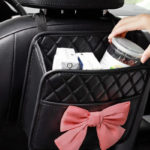1. Book your flight if you are traveling by air
If you are traveling abroad, the cost of flights can make up a significant portion of your travel expenses. To save money, it’s advisable to book your flights early (at least 3-4 months in advance) to take advantage of early bird discounts. Some airlines offer cheap fares during the off-peak travel season. If you manage to get hold of these discounted tickets, you can save a considerable amount. Additionally, booking your flights early will make it easier for you to apply for a visa.
When booking your flights, take note of the time zones. Check the local time of your destination to plan your connecting flights or hotel accommodations accordingly.
2. Maintain your car if you are using it as your mode of transportation
Before hitting the road, make sure to change the oil of your vehicle and inspect its condition: check if the engine runs smoothly, if the battery is fully charged, if the lights are working properly, etc. If you notice any issues with your car, have it fixed immediately.
– Let your mechanic know that you are planning a long-distance trip and inform them of your intended route. This information is essential for them to determine whether your car is suitable for the trip or if any repairs are needed.
– You may also contact the insurance company from where you purchased your car insurance. This will provide you with coverage in case of any unfortunate incidents that may occur while driving.
3. Make hotel reservations at your destination
As soon as you step foot in the airport, all you would want is to relax on a comfortable bed. To ensure this, it is advisable to make hotel reservations in advance, as you may not have the energy to look for accommodation when you are tired. Not to mention, the distance from the airport to your hotel can be quite far. Do you want a car to conveniently travel at this time (and the following days)? Then contact a car rental service before leaving home.
However, make sure you have an international driving license and purchased car insurance before renting a car in the country. Additionally, familiarize yourself with the local traffic laws and road signs of that country to avoid any mistakes while driving.
4. Buy travel insurance for yourself and your loved ones
There are many risks that can occur during your trip for both yourself and your loved ones. Therefore, it is essential to purchase travel insurance. If you are traveling on a guided tour, the travel agency will take care of this matter.
However, if you are traveling independently, you need to research the benefits that different travel insurance plans offer to choose the one that suits your needs. It is important to buy the insurance as early as possible. Do not wait until the day of departure or after you have arrived at your destination to purchase insurance. By then, the cost will be higher, and the process will be more inconvenient. Moreover, the insurance policy may not cover the entire duration of your trip.
When choosing an insurance plan, look for coverage for medical expenses, accidents (to cover medical costs), and flight delays/cancellations (to reimburse the pre-booked expenses of your trip).
5. Inform your family or friends about your itinerary
At the very least, you should share detailed information about your travel itinerary with a few trusted individuals. They need to know your flight numbers, the name and contact information of your hotel, the places you will be visiting, etc. This is important in case they lose contact with you for any reason, as they will have a basis for finding or notifying the consulate.
6. Notify your bank about your travel plans
If you plan to use your credit card during your trip, call the customer service number (usually found at the back of your card) and provide them with the dates and locations of your travel. Otherwise, all your payment transactions during your time away from home may be flagged as fraudulent and denied.
– If you are traveling to a different country, many banks will automatically lock your credit card account (when the card is used outside Vietnam).
– Only bring 1-2 cards with you and leave the rest at home. This minimizes the risk in case your wallet and cards are lost or stolen.
7. Store contact information in your phone
While traveling to unfamiliar places, you may encounter network issues or lack of internet access. By storing relevant contact information of airlines, hotels, etc., in your phone, you won’t have to worry about not being able to access websites to find contact information.
It is also essential to obtain the address and phone number of the embassy/consulate in the country you are visiting.
Step 2: Packing your luggage
1. Choose lightweight and versatile clothing
Lightweight clothing takes up less space in your luggage and allows for easy layering to create different outfits. This preparation method helps you cope with various weather conditions, whether it’s hot or cold, sunny or rainy.
– If your trip involves outdoor winter activities such as skiing, avoid packing heavy and bulky clothing. Just one thick coat will suffice, and you should wear it from the start instead of packing it.
– If you are traveling to a different country/city, pay attention to the local customs and dress codes. Doing so will ensure that you pack the appropriate clothing and avoid feeling out of place or uncomfortable during your trip.
2. Plan your outfits for each day
If you overpack, your luggage will fill up quickly, and you might not have enough space. This means that if you are going to the beach and anticipate spending most of your time there, pack a few swimsuits, cover-ups, and only two sets of outfits for your time spent outside the beach. The same applies to footwear and accessories – do not pack high heels or boots if you will be wandering the streets all day.
3. Roll your clothes to pack them
Folded clothes take up more space in your luggage and are more prone to wrinkles compared to rolled clothes. By simply rolling your clothes, you won’t need to bring an iron, and you can fit more items in your luggage.
4. Carry a first aid kit and medical supplies
Having a basic first aid kit with you will save you time searching for a pharmacy in case of accidents or injuries. Some common medications such as cold and flu medicine, fever reducers, and anti-diarrheal medication can also be useful. If you are on prescription medication, make sure to carry your prescription with you to facilitate the purchase of replacements if your medicine gets lost.

Step 3: Ensuring safety while traveling
1. Keep in touch with someone back home if you are in a dangerous location
There are certain areas that are not safe for tourists, such as prohibited mountain ranges or beaches with warning signs. When deciding to visit these places, it’s important to call a trusted person back home to let them know you are safe, inform them of your departure and estimated return time. The person you choose should be responsible, calm, and capable of handling emergency situations.
2. Keep your valuables secure
Pickpockets often target tourists who may be distracted or disoriented by their surroundings. Therefore, it’s advisable to use a money belt or hidden pockets in your clothing to protect your important documents, money, and credit cards.
When going out, avoid bringing too many valuable items. For example, if you are heading to the beach, you can bring a small amount of cash and essential personal identification documents. However, you would not need electronic devices or credit cards.
3. Exercise caution when using public Wi-Fi
Many countries have public Wi-Fi networks, but these networks are often insecure and susceptible to hacking. If you must use public Wi-Fi, avoid accessing sensitive accounts, such as banking or credit card apps. Additionally, password protect any electronic devices you plan to bring with you to prevent unauthorized access.
4. Avoid revealing your location on social media
After taking a beautiful photo, you may want to share it with your friends immediately. However, this can inadvertently make your home a target for thieves. It’s best to wait until you return home to post photos or any other information about your trip.
Another important point is to never publicly disclose details about your travel plans on social media, including the places you will be visiting.





































